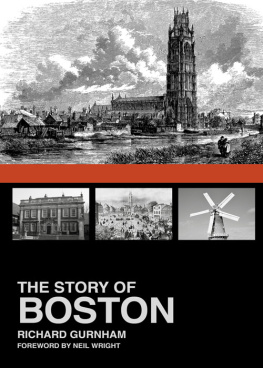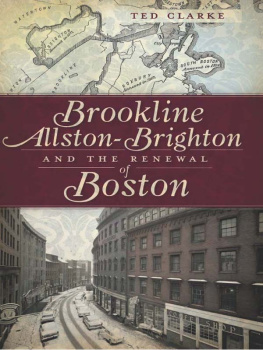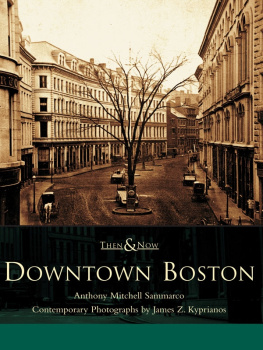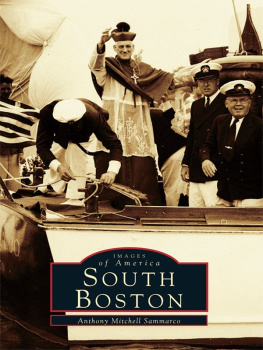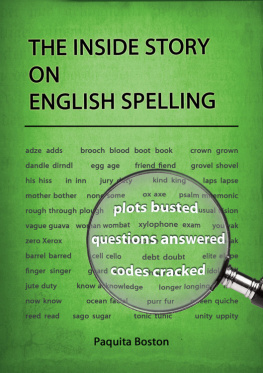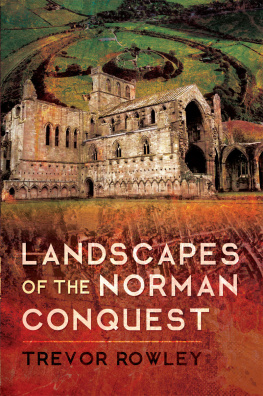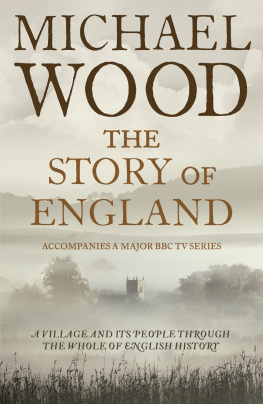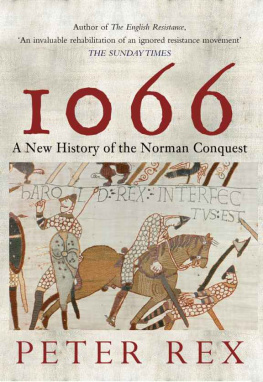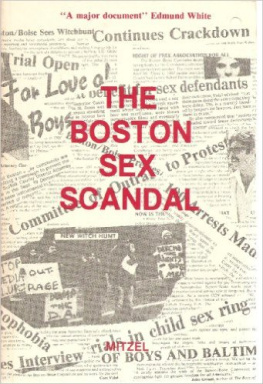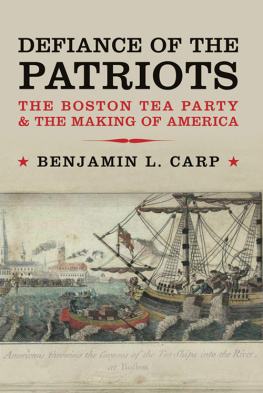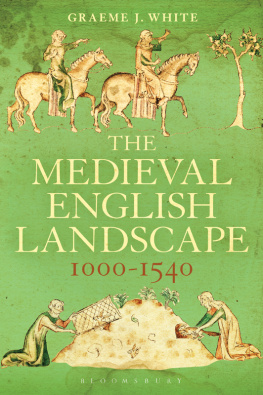CONTENTS
B oston received bad national publicity early in the early twenty-first century when violence broke out in the town between locals and immigrant workers. Boston had been thought of as a quiet country town, but it has a dramatic history and violence has broken out on other occasions in the past. Several times the growth of Boston has been sustained by immigration as people are attracted by the prospect of wealth and success.
There have been many ups and downs in Bostons history, with highs in the medieval and Georgian periods alternating with low periods of quiet contentment. Over recent decades there has been research into many aspects of Bostons history, done both locally and by people outside the town. Much of this has been published in various places, but this is the first attempt to give a comprehensive account of the towns history in all its phases.
The town has existed for over nine centuries and through much of that time its life has been linked to places beyond Englands shores. There was probably a river crossing here a thousand years ago, but it was only in the late eleventh century that one of the conquering Norman lords created a new town with a market. Within a century, the town, then called St Botolphs, was flourishing as the main port exporting wool, which was then Englands main trading product. For many years most of Boston belonged to the Honour of Richmond, which was owned at different times by great nobles of the realm or members of the Royal Family. Then, as now, several languages were to be heard on the streets of Boston and there was occasionally tension and even violence between locals and foreigners. It was said that the final decision by North German traders to stop visiting Boston in the sixteenth century followed the murder of one of their number in the town.
As the medieval wool trade died out and west coast ports rose to greater prominence, Boston entered a period of relative stagnation. It was still the main port of Lincolnshire but no longer was it of importance in national or international trade. Bostons elite gained more control of the town and its affairs in 1545 when they purchased from the king a charter creating Boston Corporation and endowing it with valuable property and rights. This marked the end of powerful external forces dominating the town, as no longer was the manor owned by a great noble or royal patron, and no longer did the great St Marys Abbey of York or the Knights of St John appoint the vicar of St Botolphs. Now the town was run by local people, and folks in London or York had no direct interest in its affairs.
This reduction in external control at the start of a century or more of religious upheaval allowed Boston to pursue an independent line in its religious life. The moment of reckoning came in the early 1600s when Archbishop Laud started to impose a firmer hand on the Church of England. This led to what is, perhaps, Bostons greatest contribution to the rest of the world. About 10 per cent of its citizens upped sticks in the 1630s and transplanted Puritan Boston to the other side of the Atlantic, where they soon assumed control of the Massachusetts Bay Colony in New England and imbued the later American conscience with its puritanical ethics. The town they left behind supported Parliament during the Civil War, being on the northern edge of the eastern alliance, and then pursued a quiet course as a local port until the end of the eighteenth century.
Then suddenly and unexpectedly Boston became a boom town. London was rapidly expanding to become the largest city in the world, and its people needed feeding. Lincolnshire provided much of the wheat for Londons bread, and ships from Boston carried that crop to the capital. Within eighty years the population of Boston tripled, as people came from far and wide to work in the granaries, shipyards, iron works, breweries and on the ships themselves. Some came in order to meet the needs of the towns own people for lawyers, doctors, tailors, cobblers, butchers and bakers. The oligarchy running the town feared for the loss of their power, and in the 1830s called in government troops to prevent the revolution they thought was coming. But there was no bang, only a whimper. The boom ended even more quickly than it started when the Great Northern Railway arrived and grabbed the trade from the port.
The GNR became the main employer in the town, but Boston was pushed into another depression until the dock opened in the 1880s, and since then the town has overall had a steady growth as new industries have come and gone. Much of the development in the twentieth century was related to the processing of Lincolnshires agricultural produce and its movement by road to the rest of the country.
Richard Gurnham has done a sterling job in bringing together his own research and the work of others in a comprehensive, enjoyable account of the fascinating history of this little town on the eastern shore of Britain. It is the story of its people, from the Norman foundation, through its medieval prosperity, the puritanical assurance which was carried to America, its precarious frontier position during the Civil War, the boom years under George III, and its quieter growth during the twentieth century. Lincolnshire people are not prone to bragging, but there is much to be proud of in Bostons long history and this book presents it in a readable and enjoyable fashion.
Neil Wright, DMA,
Lincoln, 2014
I n writing this book I have incurred a number of debts. I would especially like to thank the librarians and staff of both my local library in Louth and at Boston library, who have greatly assisted me throughout the preparation of this book, and also the staff at the Lincolnshire Archives Office who have also been most helpful.
It is also a pleasure to thank Neil Wright for all his generous help. As my bibliography and references show, I have drawn heavily on Neils many books and articles concerning the history of Boston, written over the last forty years or so. Neil kindly agreed to read through the typescript and was able to suggest numerous improvements and correct a number of errors I had made. He has also given me permission to reproduce some of the maps that appeared in An Atlas of Boston, co-written by Neil with Frank Molyneux (on pages 148, 166 and 252), as well as writing the foreword to this book.
Boston has been well served by local historians in recent years, but anyone who tries to research and write about the history of this town owes a considerable debt to Bostons first Victorian historian, Pishey Thompson. This book, like so many others before it, would not have been possible without his painstaking research, brought together more than 150 years ago in his History and Antiquities of Boston. Many of the illustrations used in my book are taken from Pishey Thompsons work, many of them having been drawn and engraved specifically for his history. I also need to thank the Trustees of the British Museum for allowing me to reproduce the cover illustration and illustrations on pages 158 and 169, and the Heritage Trust for Lincolnshire for permission to use Gillian Hardens plan of Boston in around 1250 (on page 24). Most of the other illustrations are photographs taken by either myself or my wife, Jeannie.
As ever, thanks are due to Jeannie for supporting me again in this project, and to other members of my family, who have read various chapters of the book as it has progressed, given me their advice and encouragement, and helped in other ways.
THE CREATION OF A MEDIEVAL
NEW TOWN, 10861300
Origins
Boston was one of the great success stories of the High Middle Ages. Famously unmentioned in Domesday Book in 1086, it was to become, in little more than a hundred years, the busiest provincial wool-exporting port in the country. Its merchants would pay more taxation to the Crown than those of any other port except London itself, and by the late thirteenth century its fair was to be one of the largest in the country and of international importance, visited by merchants from across Europe. In 1334 it was the fifth richest town in England and, in 1377, the tenth largest.

